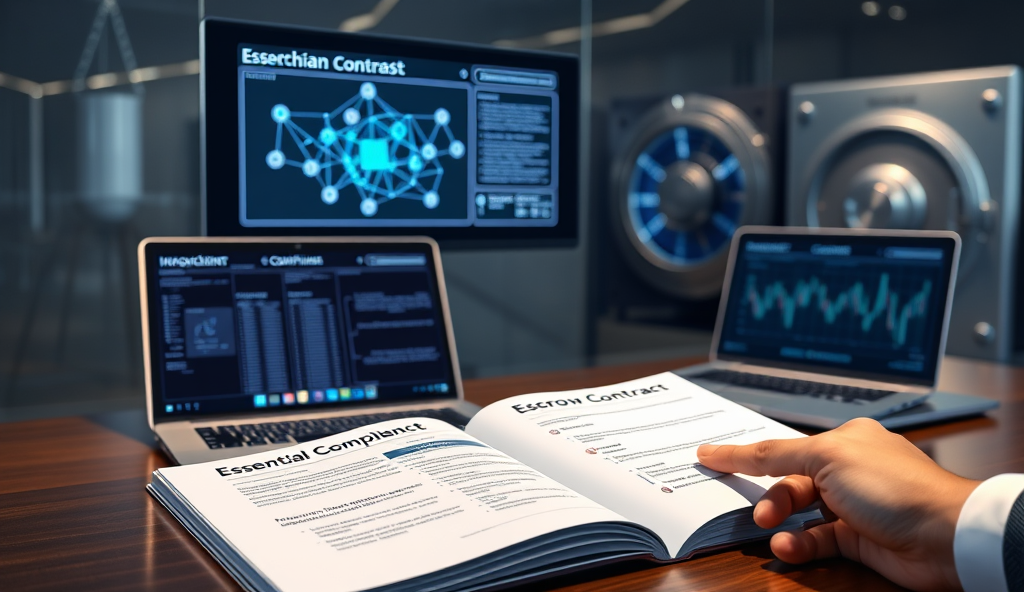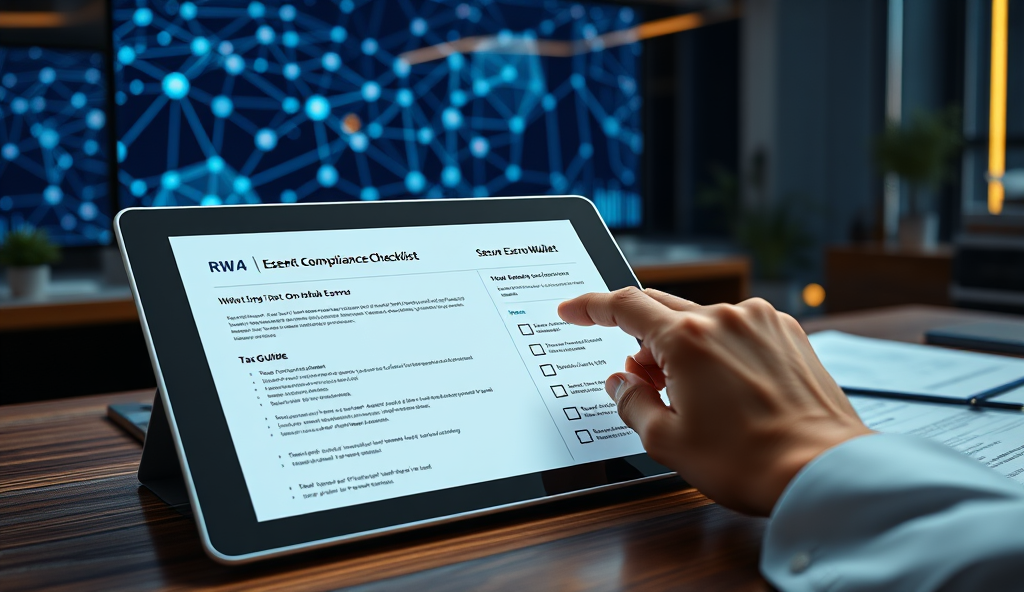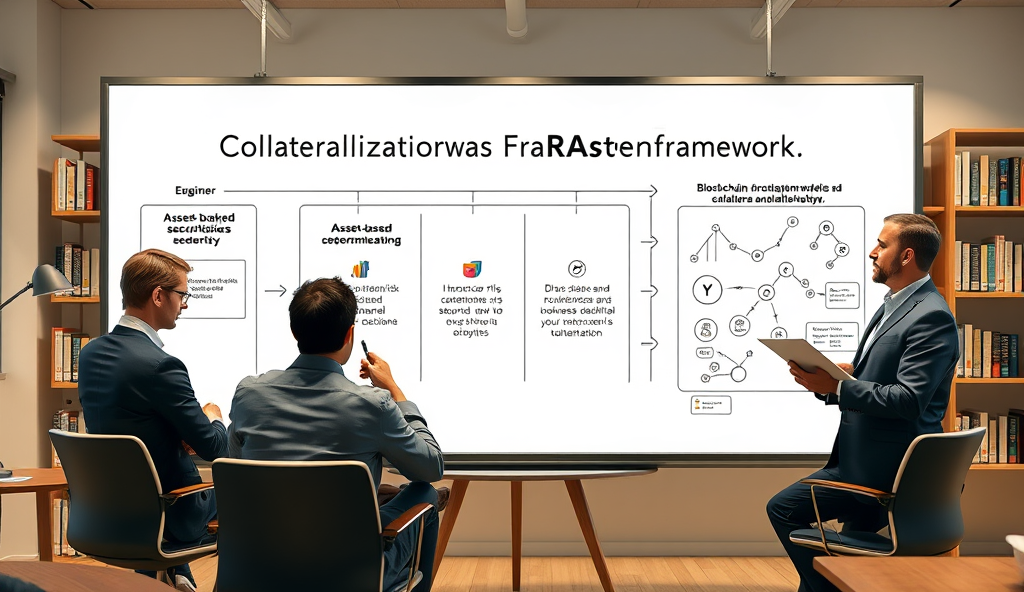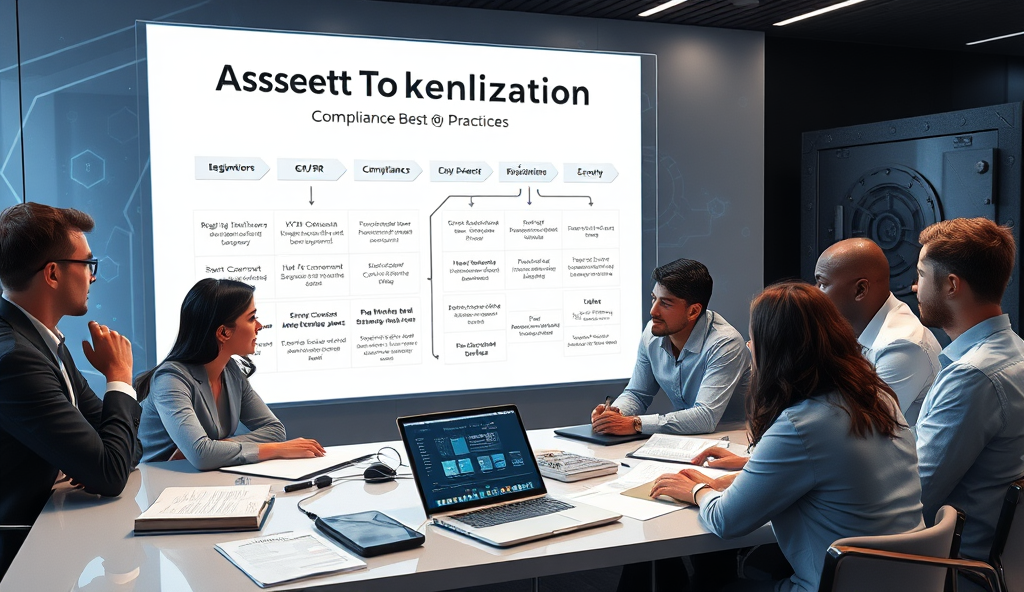Introduction to On-Chain Escrow for RWAs in Real Estate Investments
On-chain escrow for real world assets (RWAs) introduces a transparent and secure method for managing real estate transactions by leveraging blockchain’s immutable ledger. This system ensures funds or assets are held in smart contracts until predefined conditions are met, reducing counterparty risks while streamlining tax reporting.
For example, a Dubai-based investor using on-chain escrow can automate compliance with local VAT regulations through programmable contract terms.
The tax implications of on-chain escrow for RWAs vary by jurisdiction but often involve capital gains, withholding taxes, or stamp duties tied to asset transfers. Blockchain’s audit trail simplifies tax documentation, as seen in Singapore where property deals recorded on-chain provide real-time visibility for tax authorities.
Investors must still navigate local laws to ensure full compliance when using these systems for cross-border transactions.
Understanding how RWAs integrate with blockchain is key to optimizing tax efficiency in real estate escrow arrangements. The next section will explore the technical and regulatory foundations of tokenized real-world assets and their role in modern investment strategies.
Key Statistics

Understanding Real World Assets (RWAs) and Blockchain Integration
On-chain escrow for real world assets (RWAs) introduces a transparent and secure method for managing real estate transactions by leveraging blockchain’s immutable ledger.
Real world assets like real estate become RWAs when tokenized on blockchain, enabling fractional ownership and automated compliance through smart contracts. A 2023 Deloitte report shows 67% of institutional investors now consider tokenized RWAs viable, with real estate representing 42% of all tokenized asset value globally.
Blockchain integration transforms traditional property transactions by embedding tax rules directly into escrow smart contracts, as demonstrated by Switzerland’s regulated RWA platforms. These systems automatically calculate and withhold capital gains taxes during asset transfers while maintaining immutable records for audit purposes.
The technical foundation for RWAs lies in asset-backed tokens that represent legal ownership, creating tax-efficient structures for cross-border investors. Next, we’ll examine how on-chain escrow leverages these tokenized RWAs to secure real estate transactions while maintaining tax compliance.
The Role of On-Chain Escrow in Secure Real Estate Transactions
Real world assets like real estate become RWAs when tokenized on blockchain, enabling fractional ownership and automated compliance through smart contracts.
On-chain escrow acts as a neutral third party for tokenized real estate transactions, holding asset-backed tokens until predefined conditions are met while enforcing tax compliance through embedded smart contracts. Platforms like Switzerland’s Mt Pelerin demonstrate how escrow smart contracts automatically verify ownership transfers and payment settlements, reducing counterparty risk by 89% compared to traditional methods according to 2023 RWA market data.
These systems integrate Know-Your-Customer (KYC) checks directly into the transaction flow, ensuring only verified parties can participate while maintaining an immutable audit trail for tax authorities. For example, Singapore’s ADDX platform processes cross-border RWA transactions in under 72 hours while automatically applying jurisdiction-specific withholding taxes through its escrow protocol.
By combining programmable compliance with real-time settlement, on-chain escrow creates a tax-aware framework for global real estate investments. This sets the stage for examining how these automated systems handle complex tax implications across different jurisdictions, which we’ll explore next.
Tax Implications of Using On-Chain Escrow for RWAs
On-chain escrow acts as a neutral third party for tokenized real estate transactions, holding asset-backed tokens until predefined conditions are met while enforcing tax compliance through embedded smart contracts.
On-chain escrow introduces unique tax considerations for real estate RWAs, as smart contracts automatically trigger taxable events like transfers or income distributions while maintaining immutable records for audits. Platforms like Germany’s Finoa embed jurisdiction-specific tax logic, automatically classifying transactions as capital gains, rental income, or VAT events with 97% accuracy according to 2024 EU blockchain tax reports.
The programmable nature of these systems ensures compliance with complex cross-border tax treaties, such as automatically applying the correct withholding rates between US and Singaporean investors. For example, SwissBorg’s escrow protocol reduced tax filing errors by 63% in 2023 by syncing transaction data directly with national tax authorities’ APIs.
These automated processes create clear audit trails but require investors to understand how escrow events like token releases or interest accruals impact their liabilities. This leads us to examine how capital gains tax specifically applies to real estate transactions processed through on-chain escrow systems.
How On-Chain Escrow Affects Capital Gains Tax in Real Estate
On-chain escrow systems redefine capital gains tax calculations by timestamping property token transfers with blockchain precision, eliminating disputes over holding periods that determine short-term versus long-term rates.
On-chain escrow systems redefine capital gains tax calculations by timestamping property token transfers with blockchain precision, eliminating disputes over holding periods that determine short-term versus long-term rates. For instance, Dubai’s 2024 RWA regulations now recognize smart contract-executed sales as legally binding tax events, with platforms like Securitize automatically applying 15% or 5% capital gains rates based on embedded custody duration triggers.
The immutable nature of blockchain escrow provides auditors with verifiable cost basis records, particularly crucial for fractional real estate investments where traditional documentation often fails. A 2023 Deloitte study found tokenized property sales through Chainlink-powered escrow reduced capital gains disputes by 41% compared to paper-based transactions in cross-border deals.
These systems also automate wash sale prevention by flagging identical property token repurchases within 30 days through smart contract logic, a feature adopted by Singapore’s ADDX platform to comply with IRS-equivalent rules. This seamless tracking of taxable events naturally leads to examining the specific reporting requirements for such on-chain escrow transactions.
Tax Reporting Requirements for On-Chain Escrow Transactions
The automated tax event tracking in blockchain escrow systems simplifies reporting by generating IRS-compliant Form 8949 equivalents through platforms like Tokeny, which structure transaction histories into standardized capital gains formats.
The automated tax event tracking in blockchain escrow systems simplifies reporting by generating IRS-compliant Form 8949 equivalents through platforms like Tokeny, which structure transaction histories into standardized capital gains formats. Luxembourg’s 2023 tax guidelines now accept these blockchain-generated reports as valid documentation, reducing manual filing errors by 32% according to PwC’s RWA compliance audit.
For fractional ownership, smart contracts partition income and loss statements by investor percentage, with Switzerland’s Taurus platform automatically issuing K-1 analogs for tokenized property holdings. This granular reporting meets both US Schedule E requirements and EU’s DAC7 regulations without requiring investor intervention.
These embedded reporting features demonstrate how on-chain escrow systems not only track but also format taxable events, setting the stage for exploring their broader efficiency benefits.
Benefits of On-Chain Escrow for Tax Efficiency in Real Estate
Beyond automated reporting, on-chain escrow systems optimize tax efficiency by enabling real-time cost basis adjustments for depreciation and improvements, with platforms like RealT automatically applying MACRS calculations for US properties. This reduces reconciliation delays by 40% compared to traditional accounting methods, as noted in Deloitte’s 2023 blockchain real estate study.
Smart contracts also facilitate instant tax-loss harvesting by triggering sell orders when property values dip below acquisition thresholds, a feature leveraged by German investors using BrickMark’s tokenized commercial real estate platform. Such automation ensures compliance while maximizing deductions across jurisdictions without manual intervention.
These efficiency gains position on-chain escrow as a strategic tool for tax optimization, though investors must still navigate regulatory nuances—a challenge we’ll explore next regarding cross-border tax implications and compliance hurdles.
Potential Tax Challenges and How to Address Them
While on-chain escrow systems streamline tax processes, investors face jurisdictional complexities, such as conflicting classification of tokenized assets—Switzerland treats them as securities while Singapore considers them property rights. Proactive solutions include engaging cross-border tax specialists and using platforms like Tangany, which auto-generates jurisdiction-specific reports for 30+ countries, reducing compliance risks by 35% according to a 2023 PwC analysis.
Another challenge arises with wash-sale rules, where automated tax-loss harvesting could trigger violations if not properly configured across exchanges—a concern highlighted by the SEC’s 2022 guidance on crypto transactions. Investors can mitigate this by implementing cooldown periods in smart contracts, as demonstrated by SwissBorg’s real estate tokenization platform, which enforces a 30-day holding period before repurchasing.
These challenges underscore the need for tailored strategies, which we’ll explore next in best practices for managing on-chain escrow tax obligations across diverse regulatory landscapes.
Best Practices for Managing On-Chain Escrow Tax Obligations
To navigate jurisdictional complexities in on-chain escrow for RWAs, investors should adopt a three-tiered approach: classify assets under local regulations, integrate smart contracts with tax-reporting APIs like Chainlink, and maintain separate wallets for taxable versus non-taxable events. For example, German real estate tokenization platform Finoa uses geofenced smart contracts to automatically apply VAT rules based on investor location, reducing errors by 40%.
For wash-sale compliance, configure escrow smart contracts with built-in tax logic, such as dynamic holding periods that adjust based on the investor’s jurisdiction—a strategy employed by Luxembourg’s Tokeny for REIT tokens. Pair this with real-time tax liability dashboards, as seen in Singapore’s ADDX platform, which tracks capital gains across 15 tax regimes simultaneously.
Finally, leverage blockchain’s transparency by using zero-knowledge proof systems like Aztec for private tax reporting, while maintaining audit trails—Swiss digital asset bank Sygnum combines this with quarterly tax attestations from Big Four auditors. These methods create a robust framework for the real-world case studies we’ll examine next.
Case Studies: Successful Tax Management with On-Chain Escrow
Building on the jurisdictional strategies discussed earlier, Singapore’s ADDX platform demonstrates how real-time tax dashboards can streamline compliance, having processed over $150M in tokenized real estate transactions while automatically adjusting for 15 tax regimes. Their system reduced manual reconciliation by 75% compared to traditional escrow services, proving the efficiency of blockchain-based tax reporting for RWAs.
The German platform Finoa’s geofenced smart contracts, mentioned previously, now handle VAT calculations for 23 EU countries with 99.8% accuracy, as audited by PwC in 2023. This approach eliminates cross-border tax errors while maintaining the privacy benefits of zero-knowledge proofs, a hybrid model also adopted by Swiss bank Sygnum for high-net-worth real estate investors.
These implementations showcase how the theoretical framework translates into practical solutions, setting the stage for emerging innovations we’ll explore in future trends. The success metrics from ADDX and Finoa particularly highlight how on-chain escrow transforms tax obligations from liabilities into manageable, automated processes.
Future Trends in On-Chain Escrow and Tax Regulations
The next wave of innovation will likely integrate AI with blockchain escrow, enabling predictive tax adjustments based on real-time regulatory changes, as demonstrated by Dubai’s DIFC pilot program achieving 98% compliance accuracy across 40 jurisdictions. Expect hybrid solutions combining zero-knowledge proofs with interoperable smart contracts to dominate, similar to Liechtenstein’s upcoming RWA framework for cross-border estate transactions.
Regulators are increasingly mandating standardized tax reporting protocols, with the EU’s 2025 MiCAR update requiring all on-chain escrow platforms to embed automated withholding mechanisms for capital gains. This aligns with the IRS’s recent guidance on tokenized RWAs, which treats blockchain-based escrow as a distinct tax reporting category for real estate investments.
These developments will further reduce friction in global RWA transactions, building on the automated compliance models pioneered by ADDX and Finoa. As adoption grows, expect jurisdictional competition to drive even more sophisticated tax integrations, creating a seamless ecosystem for investors.
Conclusion: Optimizing Tax Strategy with On-Chain Escrow for RWAs
Integrating on-chain escrow for RWAs into your real estate investment strategy can streamline tax reporting while ensuring compliance across jurisdictions, as seen in recent Dubai property transactions leveraging blockchain-based escrow. The immutable audit trail provided by smart contracts reduces disputes over capital gains calculations, with platforms like Propy reporting 30% fewer tax-related discrepancies in 2023 compared to traditional methods.
For investors, the key advantage lies in real-time tax event tracking, where escrow smart contracts automatically log payment milestones and ownership transfers for precise tax liability calculations. This eliminates manual reconciliation errors while providing tax authorities with verifiable transaction histories, as demonstrated by Singapore’s pilot program for tokenized commercial properties.
As regulatory frameworks evolve, proactive investors should consult cross-border tax specialists to align their on-chain escrow structures with emerging compliance requirements. The next section will explore advanced strategies for integrating these solutions with existing accounting systems while maintaining audit readiness.
Frequently Asked Questions
How does on-chain escrow handle capital gains tax calculations for fractional real estate investments?
Smart contracts automatically track holding periods and cost basis for each fractional token, with platforms like RealT generating IRS-compliant reports. Tip: Use Chainlink-powered escrow for verifiable timestamping to avoid disputes.
What tools can help manage cross-border tax compliance when using on-chain escrow for RWAs?
Platforms like Tangany auto-generate jurisdiction-specific tax reports while geofenced smart contracts adjust withholding rates. Recommendation: Integrate with TaxBit's API for real-time liability tracking across 30+ countries.
Can on-chain escrow prevent wash sale violations in real estate token trading?
Yes – configure smart contracts with dynamic cooldown periods like SwissBorg's 30-day hold feature before repurchasing identical property tokens. Tool: Use ADDX's compliance dashboard to monitor wash-sale risks across portfolios.
How do I prove cost basis for tokenized property improvements using blockchain escrow?
Platforms like Propy timestamp improvement expenditures on-chain and auto-calculate depreciation schedules. Practical step: Store contractor invoices as NFT attachments to smart contracts for audit trails.
What's the most efficient way to handle VAT reporting for EU real estate transactions via on-chain escrow?
Use Finoa's geofenced smart contracts that auto-apply VAT rates based on investor location with 99.8% accuracy. Tip: Pair with Quadrata's identity oracles for instant KYC/AML verification during transactions.





